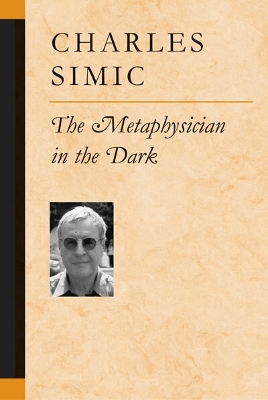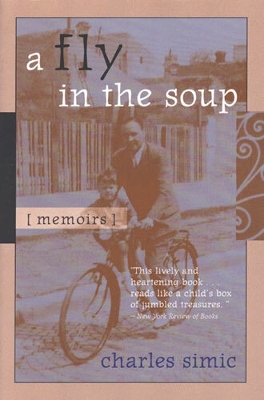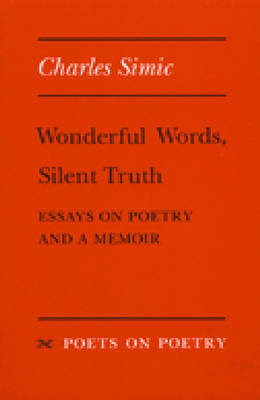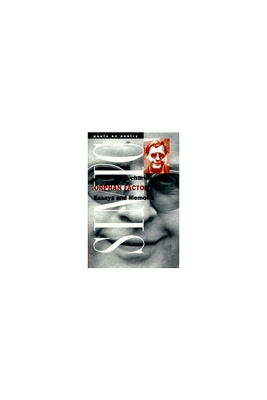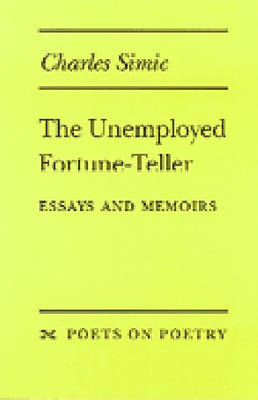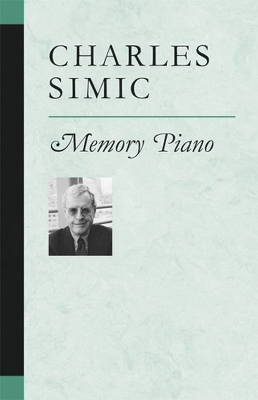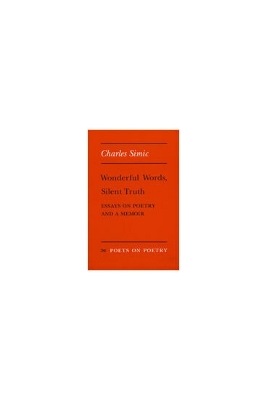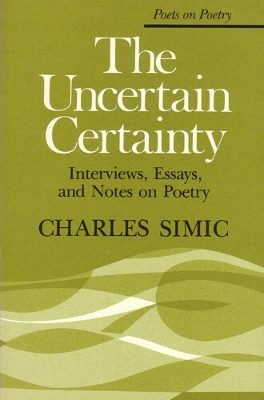Poets on Poetry
8 total works
Often, he addresses poetry itself. Among the pieces here are appreciations of Mark Strand, James Merrill, John Ashbery, and James Tate, each evaluated with a keen eye tempered by a generous spirit. Other essays discuss Joseph Brodsky, Czeslaw Milosz, and Vasko Popa; to these writers he brings the understanding available only to those who can read them in the original. In considering Brodsky's translations, for instance, he offers insights regarding not only the poet himself but the very nature of language. Elsewhere, he peers into poetry's past and its future: as a vessel of memory, a witness to history, and a mirror of human experience.
But perhaps the greatest pleasures afforded by The Metaphysician in the Dark, as he styles himself with a beguiling mix of modesty and irony, appear when Simic goes further afield. His look at the deadpan comedy of Buster Keaton is as revealing of the author as of the actor and his craft; his perusal of a Heironymous Bosch altarpiece captures both the painter's sense of apocalypse and a riotous joy in the piling of detail upon detail; his review of a book on Joseph Cornell examines how obsession becomes art. He is fluently familiar with subjects as diverse as Saul Bellow's novels and Aberlardo Morell's extraordinary camera obscura photographs. Yet when he takes the gloves off, as in two essays on the Serbia of Slobodan Milosevic, his outrage is as forceful as his pride is strong in his own Serbian heritage.
Each of the two dozen essays here reflects a sophistication irresistible in its simplicity; taken together, they display a questing intelligence and a panorama of life and art.
Charles Simic is an acclaimed poet, novelist, essayist and teacher. Winner of a MacArthur Fellowship and a Pulitzer Prize, he is the author of more than twenty volumes of poetry and six books of prose, as well as numerous translations. He is Distinguished University Professor of English at the University of New Hampshire, where he has taught since 1973.
The book collects pieces written on such diverse subjects as memory, history, the bombing of cities, cuisine, philosophy, life in the army, movies, and growing up in wartime. Arranged chronologically, they make an unusual memoir of exile and refugee life, a collage of stories, anecdotes, meditations and poetic fragments from one of the most barbaric periods of the last century. This is a story of a young man whose travel agents were Hitler and Stalin--the autobiography of the early years of one of the most respected contemporary American poets.
Charles Simic has published more than sixty books in the United States and abroad for which he has received a number of prestigious literary awards including the Pulitzer Prize for poetry and the MacArthur Fellowship.
In the title essay, Simic--whom critic Helen Vendler has called the best political poet on the American scene--reflects on his family's experiences of their war-torn homeland during World War II and the frightening familiarity of the recent tragic events in the region. The collection has many hilarious moments, such as Simic's memoir of his first days in New York City as a young poet and painter, impressions from his poet's notebook, and first lines from his unwritten books. The book also contains reflections on dreams, insomnia, and the night sky, and considers the work of poets Jane Kenyon and Ingeborg Bachmann, and of visual artists Saul Steinberg and Holly Wright.
Charles Simic's most recent poetry collections are Walking the Black Cat ( 1996), nominated for the National Book Award, and Hotel Insomnia. He has won numerous prizes, including the Pulitzer Prize, Guggenheim and MacArthur Fellowships, and a P.E.N. Translation Prize.
Provides a critical and autobiographical context for viewing Simic's poetry
